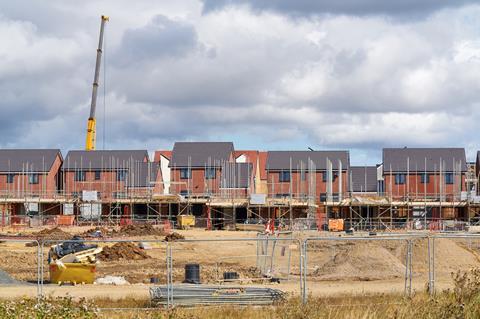Looking back in history, whenever the UK economy has faced a recession, the government has always looked to the housing market to stimulate activity – Help to Buy being the effort that followed the 2008 financial crisis.

Help to Buy has had its critics, but it has allowed housebuilders to increase supply significantly, particularly in the regions and suburban areas. However, it has not supported high-density urban housing development, because buyers can only utilise Help to Buy within six months of completion; high-density development takes a long time to build and homes must be sold three to four years before projects are completed. Without these pre-sales, banks will not let us draw down development loans.
So for developers focused on high-density urban housing, a stamp duty holiday could have given much needed support in a way Help to Buy could not. London in particular had been crying out for this move, given the high-density nature of residential development in the capital.
However, while the recently announced stamp duty holiday has the right intentions, it will not act as a catalyst for new high-density urban development, which is a missed opportunity. The key shortfall is the fact that the holiday only applies to properties that are completed by the end of March 2021. This will essentially only help the sale of plots that have already been built and will not enable developers to build more, which should have been a key objective.

We strongly recommend extending this to homes that exchange in the period. This would boost off-plan sales as well as stock, act as a catalyst for new development and create many new jobs in the construction and development industry – ultimately offering support to a faltering economy.
Three years on from the last reform, housing demand continues to rise, yet as a sector, we have been falling behind. Supply levels across the industry will have halted during this crisis, so it is vital we provide a lifeline to encourage productivity again. A pause on stamp duty for off-plan sales will stimulate the housing market and boost transactions, improving the provision of homes that cater for every walk of life.
Our call for a temporary reduction in stamp duty for off-plan sales is not revolutionary and sits within the wider context of how the government can encourage economic activity to pick up again.
Developers and housebuilders not only continue to deliver homes with a variety of tenures, but much-needed employment and provisions facilitate a community’s growth. None of this is sustainable unless the industry is given an opportunity to breathe.
This was an opportunity for the chancellor to jump-start the economy, encourage a surge in housing market growth and bring a net gain to the capital that is both sustainable and long-term. As it stands, it’s a pity that these stamp duty changes won’t have the impact we had hoped for.
John Mulryan is group managing director of Ballymore





























No comments yet